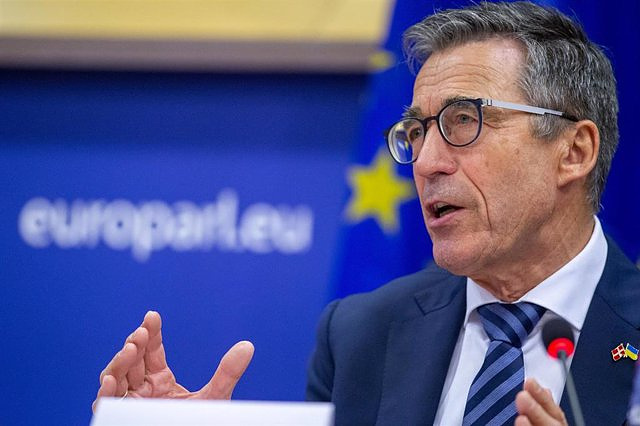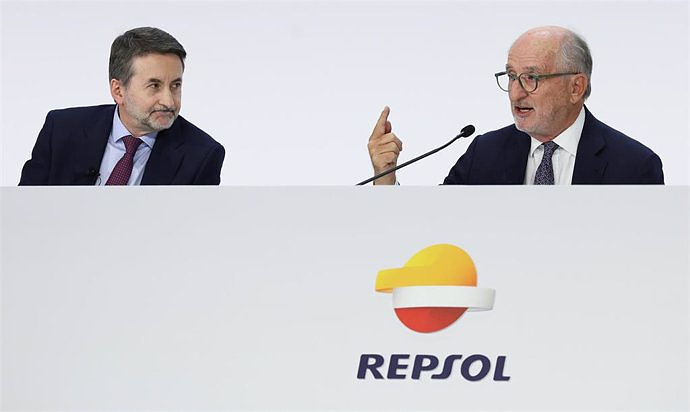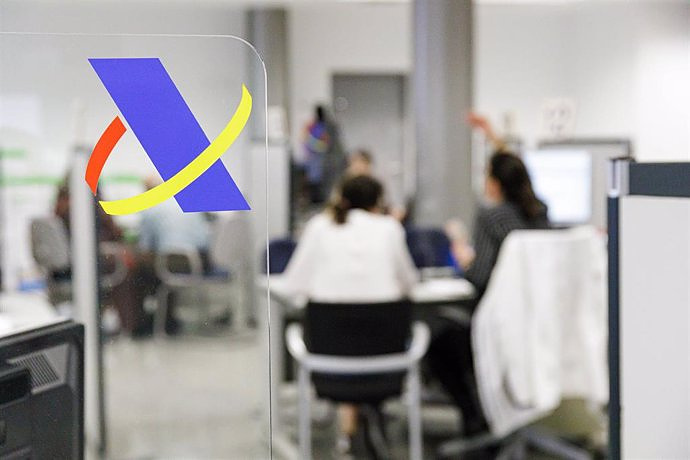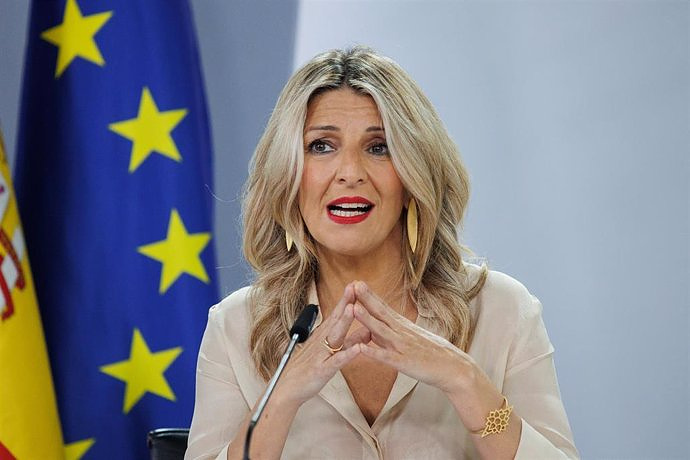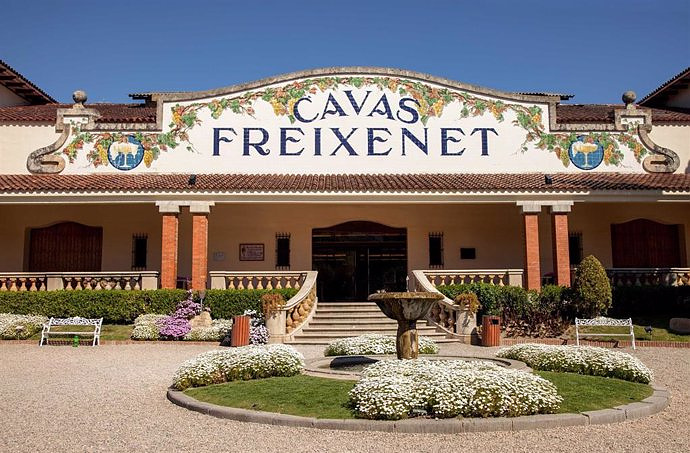Defends a security agreement with kyiv that paves its future accession to NATO
BRUSSELS, 31 Ene. (EUROPE PRESS) -
The former Secretary General of NATO Anders Rasmussen has acknowledged this Tuesday that NATO members "in some way" are involved in the war in Ukraine, by sending military weapons to kyiv, although he has defended that NATO as such is not part of the conflict and will not send troops to the ground.
"NATO is not part of the war. On whether we consider each ally individually as part of the war, partly yes, we should not hide this," Rasmussen said in a speech at the Parliament's Defense and Foreign Affairs committee European Union, to immediately point out that Ukraine has the right to defend itself and to ask its partners for help, so that the military assistance of the allies complies with International Law according to the Charter of the United Nations.
"We should not be surprised that, more or less, we are part of this war to defend Ukraine. This is perfectly in accordance with International Law," he remarked in front of the MEPs.
Rasmussen has stressed that while the progress of the war is being discussed in Europe, human lives are being lost in Ukraine, which is why he has defended sending all the weapons Ukraine needs to wage war against Russia. "We have a responsibility to end the war and the more and heavier weapons and the sooner they are sent to Ukraine, the sooner we can end this war," she defended.
The also former Danish prime minister has lamented that the debates on military aid between allies, including what they exclude from supplying kyiv, has given Russian President Vladimir Putin room for maneuver. However, shortly after he has ruled out the use of nuclear weapons or the presence of troops from NATO countries on the ground.
"Apart from that, I don't think we should exclude anything. A peace with a dictator will not lead to peace but to conflict and war. Because a dictator's appetite knows no end," he defended before MEPs.
The former NATO political chief has advocated a security deal to provide a "framework" for rebuilding and helping Ukraine on its way to the EU and NATO. "The accession will take time and this agreement consists of improving their security now and in the future", he has exposed him.
In order to allow Ukraine to be able to defend itself against the Russian threat, the allies must offer a "sustainable" and "several decades" commitment, he said, after stressing that the plan involves strengthening the capacity of the Ukrainian Army, sustaining military training of Ukrainian troops and develop the country's military industry.
According to the Scandinavian politician, this pact, which does not seek to replace Ukraine's accession to NATO, would avoid divisions between allies when their entry into NATO is debated, understanding that it will help their future entry. "De facto it is a codification of what we already do but with a strategic orientation", he has pointed out.
Despite indicating his commitment to Ukraine joining NATO, Rasmussen has admitted that he sees immediate entry as "complicated" since the Ukrainian authorities could invoke Article 5 and request the military assistance of all allies, pushing NATO into a direct war against Russia. "That is why I think it is better to introduce a security pact and give Ukraine guarantees as the first step that can pave the way for NATO membership," he added.
The former Danish premier has defended that the withdrawal of Russian troops from Ukrainian territory is a condition for sitting down to negotiate with Moscow. "I don't think there will be negotiations that will determine the outcome of the war, it will be the positions on the battlefield," he opined.

 Exploring Cardano: Inner Workings and Advantages of this Cryptocurrency
Exploring Cardano: Inner Workings and Advantages of this Cryptocurrency Seville.- Economy.- Innova.- STSA inaugurates its new painting and sealing hangar in San Pablo, for 18 million
Seville.- Economy.- Innova.- STSA inaugurates its new painting and sealing hangar in San Pablo, for 18 million Innova.- More than 300 volunteers join the Andalucía Compromiso Digital network in one month to facilitate access to ICT
Innova.- More than 300 volunteers join the Andalucía Compromiso Digital network in one month to facilitate access to ICT Innova.-AMP.- Ayesa acquires 51% of Sadiel, which will create new technological engineering products and expand markets
Innova.-AMP.- Ayesa acquires 51% of Sadiel, which will create new technological engineering products and expand markets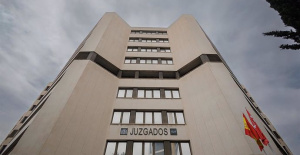 The judge who admitted the complaint of Clean Hands against Begoña Gómez interrogates two media officials this Friday
The judge who admitted the complaint of Clean Hands against Begoña Gómez interrogates two media officials this Friday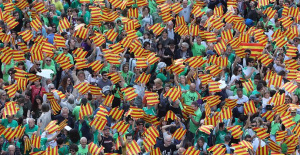 Thousands of people in Palma demand to defend Catalan against the "involutionary policies" of "a fanatical minority"
Thousands of people in Palma demand to defend Catalan against the "involutionary policies" of "a fanatical minority"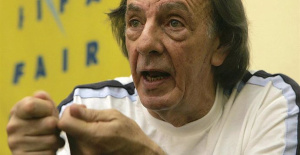 Menotti, maestro of Argentine football since the 1978 World Cup, dies
Menotti, maestro of Argentine football since the 1978 World Cup, dies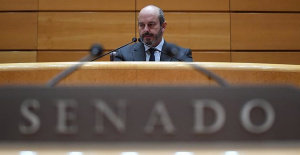 The amnesty faces its final stretch in the Senate with the question of whether it will be voted this week or after the Catalan elections.
The amnesty faces its final stretch in the Senate with the question of whether it will be voted this week or after the Catalan elections. How Blockchain in being used to shape the future
How Blockchain in being used to shape the future Not just BTC and ETH: Here Are Some More Interesting Coins Worth Focusing on
Not just BTC and ETH: Here Are Some More Interesting Coins Worth Focusing on A sensor system obtains the fingerprint of essential oils and detects if they have been adulterated
A sensor system obtains the fingerprint of essential oils and detects if they have been adulterated Faraday UPV presents the 'Origin' rocket to exceed 10 km of flight: "It is the beginning of the journey to space"
Faraday UPV presents the 'Origin' rocket to exceed 10 km of flight: "It is the beginning of the journey to space" The Generalitat calls for aid worth 4 million to promote innovation projects in municipalities
The Generalitat calls for aid worth 4 million to promote innovation projects in municipalities UPV students design an app that helps improve the ventilation of homes in the face of high temperatures
UPV students design an app that helps improve the ventilation of homes in the face of high temperatures A million people demonstrate in France against Macron's pension reform
A million people demonstrate in France against Macron's pension reform Russia launches several missiles against "critical infrastructure" in the city of Zaporizhia
Russia launches several missiles against "critical infrastructure" in the city of Zaporizhia A "procession" remembers the dead of the Calabria shipwreck as bodies continue to wash up on the shore
A "procession" remembers the dead of the Calabria shipwreck as bodies continue to wash up on the shore Prison sentences handed down for three prominent Hong Kong pro-democracy activists
Prison sentences handed down for three prominent Hong Kong pro-democracy activists ETH continues to leave trading platforms, Ethereum balance on exchanges lowest in 3 years
ETH continues to leave trading platforms, Ethereum balance on exchanges lowest in 3 years Investors invest $450 million in Consensys, Ethereum incubator now valued at $7 billion
Investors invest $450 million in Consensys, Ethereum incubator now valued at $7 billion Alchemy Integrates Ethereum L2 Product Starknet to Enhance Web3 Scalability at a Price 100x Lower Than L1 Fees
Alchemy Integrates Ethereum L2 Product Starknet to Enhance Web3 Scalability at a Price 100x Lower Than L1 Fees Mining Report: Bitcoin's Electricity Consumption Declines by 25% in Q1 2022
Mining Report: Bitcoin's Electricity Consumption Declines by 25% in Q1 2022 Oil-to-Bitcoin Mining Firm Crusoe Energy Systems Raised $505 Million
Oil-to-Bitcoin Mining Firm Crusoe Energy Systems Raised $505 Million Microbt reveals the latest Bitcoin mining rigs -- Machines produce up to 126 TH/s with custom 5nm chip design
Microbt reveals the latest Bitcoin mining rigs -- Machines produce up to 126 TH/s with custom 5nm chip design Bitcoin's Mining Difficulty Hits a Lifetime High, With More Than 90% of BTC Supply Issued
Bitcoin's Mining Difficulty Hits a Lifetime High, With More Than 90% of BTC Supply Issued The Biggest Movers are Near, EOS, and RUNE during Friday's Selloff
The Biggest Movers are Near, EOS, and RUNE during Friday's Selloff Global Markets Spooked by a Hawkish Fed and Covid, Stocks and Crypto Gain After Musk Buys Twitter
Global Markets Spooked by a Hawkish Fed and Covid, Stocks and Crypto Gain After Musk Buys Twitter Bitso to offset carbon emissions from the Trading Platform's ERC20, ETH, and BTC Transactions
Bitso to offset carbon emissions from the Trading Platform's ERC20, ETH, and BTC Transactions Draftkings Announces 2022 College Hoops NFT Selection for March Madness
Draftkings Announces 2022 College Hoops NFT Selection for March Madness